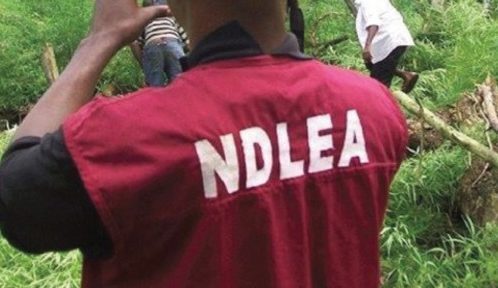…As SEMA says 47,200 IDPs now in Cross River***
Worried by lack of health facility, the Wuro Ahmadu community at Gongoshi Grazing Reserve in Mayo-Belwa Local Government Area of Adamawa has turned their only Mosque to clinic.
Wuro Ahmadu is a pastoral community with over 1,000 people and about 20,000 different livestock.
The Ward Head of the area, Alhaji Ardo Buba told the News Agency of Nigeria (NAN) in Wuro Ahmadu on Sunday that the decision of turning the mosque to clinic was to find means of providing primary healthcare services to the community.
“In Wuro Ahmadu village and its surroundings we have no fewer than 1,000 residents.
“Severally, if one is sick or a Woman is in labour we have to travel for over an hour before reaching a hospital.
“We are in this painful situation for decades and nobody is willing to assist us. So we now decided to sacrifice our only Mosque to clinic,” Buba said.
He appealed to government to assist them with a health facility, drugs and personnel to manage the clinic and look after their people.
Also read: SUICIDE: NAFDAC bans sale of Snipers
He said the village was also in need of a school for their children and standard health facility to reduce deaths and illnesses in the area.
On water provision, the ward head said PZ Cussons charity foundation recently sank two solar powered water boreholes and handed it over to the community.
Buba said the boreholes would serve the water needs of the community and their animals.
In the meantime, the Acting Director-General, State Emergency Management Agency (SEMA), Mr Princewill Ayim on Sunday affirmed in Calabar, that the Cross River State is now hosting 47,200 persons, displaced by crisis and persistent flood.
Ayim also highlighted that the figure was far above the 32,000 Internally Displaced Persons (IDPs), the state hosted in 2018, and attributed the rise in the number of IDPs to the incessant communal clashes across the state, which had rendered thousands of residents homeless.
He said that the heavy rains witnessed in the state had equally resulted into massive flooding which displaced many families from their ancestral homes, listing those affected to include Boki, Biase, Yala, Odukpani, Obubra, Bakassi and Obanliku.
He said that IDPs from Odukpani, Biase, Obubra and Yala Local Governments were displaced from their homes as a result of the lingering feud between communities in Akwa Ibom State and their neighbours, Ebonyi.
“Some of the clashes have lasted for years and have impacted negatively on the economy and welfare of the people,” he said, adding that the state government had done a lot to end the violence, but without success.
“Currently, we have invited the National Boundary Commission to the affected areas. The commission has been holding peace meetings with the governments of Ebonyi and Akwa Ibom toward finding a lasting solution to the clashes,” he said.
He said that government had been preaching peace and urging those living in the disputed areas to treat their neighbours as brothers and sisters, and regretted that people in same local government were fighting and killing over land.
Ayim urged traditional rulers in affected communities to take precautionary measures by calling their subjects to order, especially during the rainy season, so as to avert future occurrence of communal clashes.



















